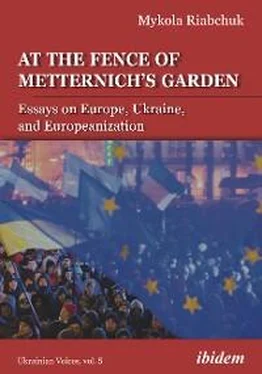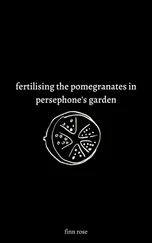Instead, he falsified the agenda of the discussion and represented the other side (Ukrainian and Polish) as irresponsible troublemakers, adventurers or, at best, nuisances who allegedly “insist” on something untenable at the moment and ridiculous.
Another discursive trick is made in a seemingly objective statement about “controversies” between Moscow and Kyiv, caused allegedly by the unsettled status of the Crimea. In actuality, yet, there are no controversies of the sort—in legal terms—since the status of the Crimea has been long ago settled both bilaterally (by Russian–Ukrainian agreements of 1990 and 1997) and internationally (both Russia and Ukraine, as OSCE members, recognized the inviolability of the existing borders in Europe, and the 1994 Budapest Memorandum obliged the signatories, including Russia, not to challenge or question Ukraine’s sovereignty in any way). What Mr. d’Estaing probably means by “controversies” is the persistent political, economic, and military pressure from the Russian side, irresponsible statements by nationalistic Russian MPs, military men, and other hawks, and all sorts of provocations staged by Russian and pro-Russian extremists in the Crimea.
The same kind of “controversy” between Nazi Germany and Czechoslovakia resulted, one may remember, in annexation of the Sudetenland and eventually of the whole Czech part of the country. The Kremlin hard-liners would certainly appreciate Giscard d’Estaing’s ‘impartiality’ as an implicit encouragement for further aggressive (or just “controversial”, as he put it) politics vis-à-vis Kyiv. His argument that the Crimea “had never historically belonged to Ukraine” may sound even more encouraging for the revanchists. But what might the implications of this sort of argumentation be? In Alsace? In Silesia? In Kosovo? In Kaliningrad? There are even more territories that “had never historically belonged to Russia”. And, by the way, the Crimea is one of them—as the native land of the Crimean Tatars, whose ancient state, the Crimean Khanate, was conquered and colonized by the Russian empire only at the end of the 18th century. One can barely find a single Crimean Tatar today who would opt for Moscow rule instead of Kyiv’s.
But what on earth have all these arguments to do with Ukraine’s EU membership prospects? The answer dwells probably at the end of Giscard d’Estaing’s argumentation. There, he speaks about a “Russian character” of the Ukrainian south-east—a vague notion that might mean either political or cultural and linguistic affinity with Russia. Whatever it means—a primordial hostility to the West, higher loyalty to Moscow than Kyiv, or just some regional peculiarities like a “French character” of the Belgian south, Swiss west or Canadian east,—Giscard d’Estaing’s verdict on Ukraine is much harder than on Belgium or Switzerland: “Those lands [i.e., Ukraine’s south east] cannot belong to the European Union as long as Russia is not admitted to the EU”.
In other words, they can never belong to the EU because Russia has never had any intentions to get there and would barely have them in the foreseeable future. Ukraine, with all its European aspirations and attempts to democratize the country, is simply downgraded to the level of essentially anti-Western, anti-European, authoritarian Russia. In fact, it is treated not as a sovereign state but, rather, as Russia’s client, a satellite or, perhaps, a kind of ‘Taiwan’ visa-a-vis ‘Greater China’.
And this is the essence of all the rhetorical zigs and zags demonstrated by the French politician. He, like many of his colleagues in France and elsewhere, has never believed that Ukraine does exist as a separate nation and that Ukrainians, even those who speak Russian, may have nonetheless a different identity, different aspirations, and different, not necessarily pro-Moscow, loyalty. Even though the Orange Revolution has shaken these stereotypical views, they persist in the West, having a long diplomatic, political, cultural, and academic tradition, deeply rooted in consciousness and collective sub-consciousness, in dominant discourses and multiple institutions.
Historically, Ukrainians have many reasons to be very sensitive about how they are treated and perceived by the West. Independent Ukraine proved to be the “unwanted step-child” not only of Soviet perestroika (as Martin Sieff put it) but also of the 1917 Russian revolution. Every Ukrainian student knows today from his/her historical textbook that the US established diplomatic relations with the USSR in 1933, exactly when Moscow was starving to death at least five million Ukrainian peasants. And from the same textbook, they know how in the same year the British Foreign Office strove to silence any information about the man-made famine in Ukraine so as not to irritate the valuable trade partners in Moscow [Subtelny 2009: 416].
Against such a background, many Ukrainians cannot but suspect that the West still has not come to terms with Ukraine’s existence, and still tends to treat it as a legitimate zone of vaguely defined but widely applied Russian ‘interests’: “Most European governments would very happily leave Ukraine in Russia’s orbit, rather than worry about the problems of a large, backward and fissiparous country” [Barysch & Grant 2004].
Such a perception has been skillfully exploited by the post-Soviet elite to invigorate old anti-Western stereotypes in Ukrainian society, to justify the lack of a coherent, comprehensive and responsible foreign policy driven by national rather than clannish or personal interests, and to divert public attention from the real and fundamental reasons that made crypto-Soviet Ukraine incompatible with and non-admittible to the EU. The rhetorical strategy under Kuchma [1994–2004] was designed to persuade the people that we are excluded not because we are unreformed and our leaders are crooks and liars but just because we are different, we are Ukrainians, Eastern Slavs, the ‘worse’ brand of human beings.
Unfortunately, Europeans did little if anything to disperse these impressions. On the contrary, in many cases, they fueled fears and biases deeply rooted in Ukrainians’ inferiority complexes.
Perhaps the best example of blind and, alas, firmly institutionalized West European Russocentrism comes from a classified report drawn up by the German and French foreign ministries in 2000: “The admission of Ukraine would imply the isolation of Russia. It is sufficient to content oneself with close cooperation with Kiev. The Union should not be enlarged to the East any further …” 1
To some West European EU members [an American expert comments on this whimsical logic] Ukraine is still seen as ‘semi-Russian’, a factor that reinforces the tendency to place the fate of all three eastern Slavs together … Linking the destinies of Ukraine and Russia places them both beyond ‘Europe’ … This suits Russia, which is seeking to develop a ‘strategic partnership’ with the EU but not membership. It does not suit Ukraine that seeks membership” [Kuzio 2003: 6, 14].
There are, of course, many reasons to prioritize relations with Russia as the biggest country on the continent, with rich natural resources, primarily gas and oil, the largest nuclear arsenal, and a permanent seat in the UN Security Council. But the reasons why Russia is overtly favored at the expense of its neighbors are less clear. Partly it can be explained by an imperial likeness between the large European nations and Russia, embedded historically in modes of thought and behavior, in national psyche and ‘habits of the heart’. A more credible explanation, however, is a heavy dependence of Western thought and Western ideas about Russia on Russian imperial myths elaborated, by and large, in the 18th century and firmly established as the ‘scholarly truth’ and ‘common knowledge’. Ukraine unfortunately has been a central part of this historical and cultural mythmaking, its major target and victim.
Читать дальше












